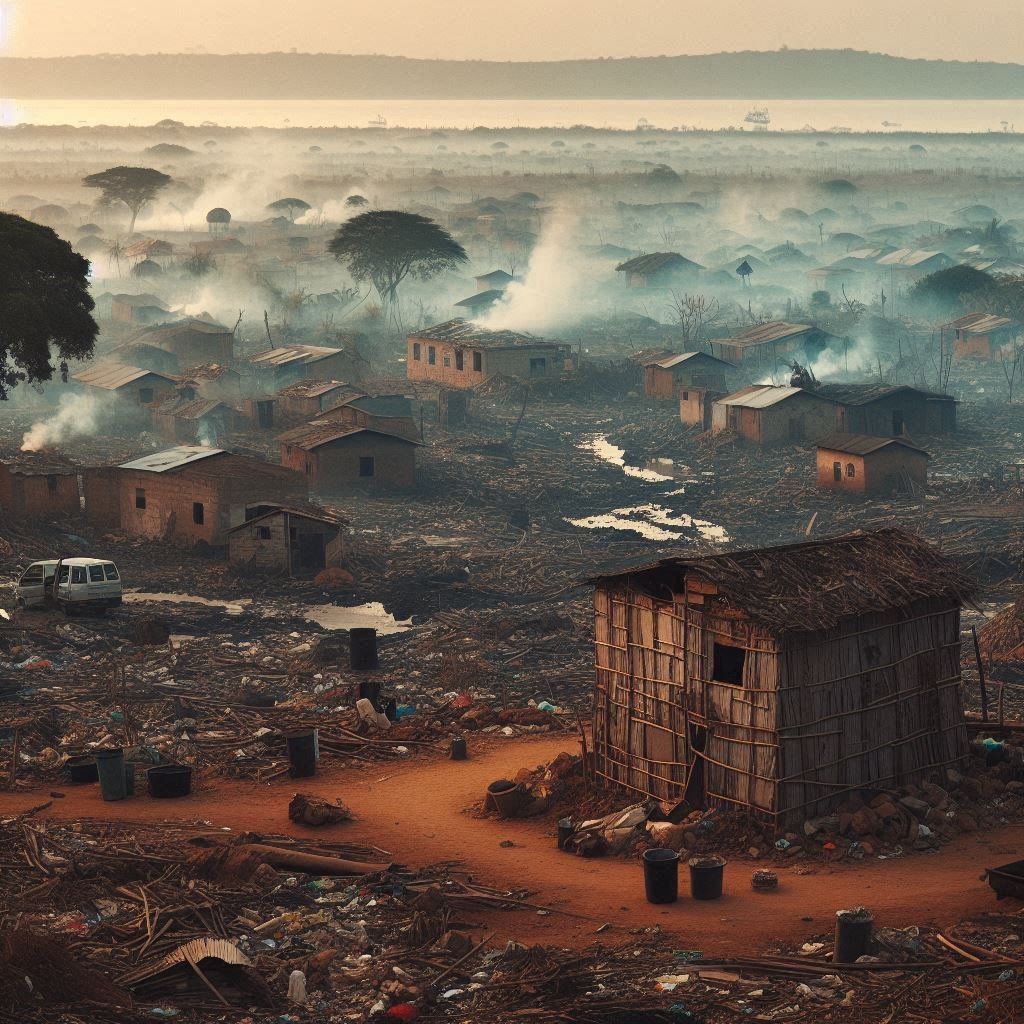Table of content
The concept of ungoverned spaces refers to areas where no effective governance exists, leading to a vacuum of authority that can have significant implications for security, economic stability, and social order. These regions often present a fertile ground for illegal activities, conflict, and humanitarian crises. Understanding the dangers posed by ungoverned spaces is crucial for policy-makers, security agencies, and international organizations.
Origins of Africa’s Ungoverned Spaces

Africa, a vast continent, rich in resources and culture, yet still grapples with a multitude of challenges from ungoverned spaces. These areas—where the influence of the state is either weak or nonexistent—pose significant threats not only to national stability but also to regional security and development. The emergence of ungoverned spaces in Africa can be attributed to several interrelated factors.

Historical legacies play a crucial role from the arbitrary borders created during colonial times which grouped diverse ethnic and cultural groups together. These groupings led to tensions that continued post-independence. In many cases, the newly established governments became ill-equipped to govern the diverse populations effectively. Weak institutions, lack of infrastructure, and limited resources further compounded the challenge.
Implications of Ungoverned Spaces in Africa

The implications of ungoverned spaces are far-reaching and multifaceted. Firstly, they serve as breeding grounds for terrorism and extremist ideologies, often hindering economic development. With limited state presence, investors are reluctant to commit to projects in these areas, leading to stagnation in economic growth. Furthermore, the exploitation of resources by illegal groups prevents local communities from benefiting from their own wealth, exacerbating poverty and inequality.
Without a governing body to instill law and order, extremist groups often seize the opportunity to establish a foothold.

They can operate freely, recruit followers, and carry out operations that threaten not only local populations but also international security.
Ungoverned spaces frequently attract a range of criminal activities, from drug trafficking and arms smuggling to human trafficking and organized crime. The absence of law enforcement creates an environment where criminal enterprises can flourish. This not only endangers the immediate population but can also have far-reaching effects, destabilizing neighboring regions and impacting global markets. The narcotics trade originating from ungoverned territories can lead to public health crises and hinder economic development in countries far removed from the source of the drugs.
Ungoverned Spaces Often Coincide With Dire Humanitarian Situations.

Ungoverned spaces often coincide with dire humanitarian situations. The lack of infrastructure, medical facilities, and basic services leads to widespread suffering. Populations in these areas may be trapped in cycles of violence, poverty, and displacement, facing challenges in accessing food, clean water, and health care. Additionally, in the absence of government support, communities can become reliant on non-state actors, which may have their own agendas that do not necessarily prioritize the welfare of the general populace.

Regions lacking governance often experience massive outflows of refugees as civilians flee violence, persecution, or dire living conditions. These mass migrations can place significant strain on neighboring countries and create tensions over resources. The challenge of managing large populations of displaced individuals can overwhelm social services and ignite xenophobic sentiments in host nations. This scenario can lead to further destabilization both in the country of origin and in the countries that receive these refugees.
Disruption of Global Trade Routes

The presence of ungoverned spaces can disrupt global trade routes and security. Piracy off the coast of Somalia, for example, highlighted how ungoverned areas pose risks to international shipping. These disruptions can lead to increased shipping costs, insurance premiums, and a general sense of insecurity in global trade. As companies factor the potential risks into their logistics strategies, the ripple effects can hinder economic growth and stability on a broader scale.
Ungoverned spaces can act as catalysts for conflicts that spill over borders, destabilizing entire regions. Neighboring countries may find themselves drawn into conflicts as they seek to counter the influence of non-state actors operating in these vacuums.

Such conflicts can precipitate arms races, refugee crises, and heightened military tensions. Over time, these instabilities can fracture regional alliances and contribute to the emergence of new conflicts.
Additionally, internal conflicts and civil wars drastically diminished the capacity of states to enforce law and order. Countries such as Somalia and the Democratic Republic of the Congo have suffered from prolonged periods of instability, giving rise to warlords, militias, and other non-state actors who fill the power vacuum. These groups often exploit the absence of governmental authority to engage in various forms of criminal activity, including smuggling, human trafficking, and illegal resource extraction.
Ungoverned Spaces Contributes to Environmental Degradation

The presence of ungoverned spaces also contributes to environmental degradation. Without effective regulation, resources are harvested unsustainably, leading to deforestation, land degradation, and loss of biodiversity. These practices threaten not only the environment but also the livelihoods of communities that rely on natural resources for survival. In the heart of Ghana’s western region, a disconcerting revelation has emerged: a galamsey enclave operating entirely under the radar of governmental oversight.

This illicit mining activity serves as a stark illustration of environmental degradation stemming from ungoverned space, highlighting the urgent need for regulatory intervention and community awareness. Galamsey, a term derived from the English phrase “gather them and sell,” reflects the rampant and often unregulated small-scale mining operations prevalent in the country.
Potential Solutions

Addressing the issue of ungoverned spaces in Africa requires a multifaceted approach that encompasses political, economic, and social dimensions. Strengthening state capacity is paramount. This involves not only building robust institutions but also ensuring that they are inclusive and representative of the diverse populations they serve. Historically, international groups and organizations established under the guise of promoting African security and development have often fallen short.

Initiatives designed to support peacekeeping, economic development, or conflict resolution have not only failed to deliver meaningful results but have, in many cases, exacerbated pre-existing problems. For instance, the imposition of foreign solutions without a comprehensive understanding of local dynamics tends to overlook the unique historical and cultural factors at play. This can lead to policies that are ineffective or, worse, damaging to the very communities they aim to help.
One thought on “Ungoverned Spaces in Africa”
Leave a Reply
You must be logged in to post a comment.





















thanks for the information